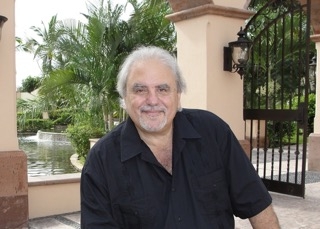Trade Show Leader: Creative Expos and Conferences' Cherif Moujabber

For any trade show company considering taking a show overseas, one of the first people that comes to mind time after time is Cherif Moujabber, who has been involved in the industry for more than 30 years.
Moujabber is Creative Expos and Conferences' founder and joined the trade show business of Horizon House (a Dedham, Mass.-based company) by organizing communications equipment shows in the U.S., Brazil and Egypt for 5 years.
In 1981, he joined Cahners Expo Group (now known as Reed Exhibitions, an Anglo-Dutch company), where he was successively posted in Boston, Los Angeles, Stamford, Conn., Washington, D.C., and Singapore as vice Ppesident for the Asia-Pacific region.
During his nearly 10 years at CEG, he managed and launched several shows serving diverse industries such as aerospace, health care, communications, electronics and information technology.
In 1989, Moujabber joined International Data Group, a Framingham, Mass.-based company, as president and CEO of its World Expo Corporation (WEC) subsidiary.
During his four years there, which included two years in Paris, WEC grew from four shows in two countries to 46 shows in 18 countries.
In 1993, Moujabber founded Creative Expos and Conferences. CEC has organized its own events in the U.S. and abroad. Today, CEC advises in the launch of shows outside their national base. CEC helps its clients recruit more foreign exhibitors and visitors by establishing an International Sales and Marketing Network (ISMN).
Moujabber took some time from traveling the world to tell TSNN about his time in the industry.
TSNN: How did you get started in the industry?
Cherif Moujabber: In 1977, I joined Horizon House, a publisher of Telecomm magazine with the ambition to expand into the exhibition field.
TSNN: How different was the industry when you started, compared with today?
Moujabber: The Georgia World Center had just opened its doors and was considered then to be the state of the art. Our industry was a very fragmented one with most organizers owning one show. None of the big boys such as Reed or UBM had the size they have today. Not even close.
TSNN: What are some of the lessons you have learned being a part of this industry?
Moujabber: Hard work, attention to details and building a first class world-wide network are some of the ingredients for a successful career in the international arena. It was true then and still true today.
TSNN: What is your favorite part of being in the industry?
Moujabber: What other industry has so many positives such as having a bird’s eye view of an industry? What industry is so cash flow positive with money paid in full ahead of time and with so little bad debt. What industry can bring people together like ours can?
TSNN: Anything you miss that you wish was still around?
Moujabber: I miss the time when we used to be pioneers and staged specialized exhibitions in new markets such as China and India, Egypt and Brazil. With no dedicated exhibition halls, we would use Stadiums, Arenas, Wedding halls and temporary structures to hold our events. I miss the spirit.
TSNN: Anything you are thrilled went away?
Moujabber: Having spent 10 years at Reed Exhibitions, one of the daunting task for executives within was a reforecast every few weeks. I certainly do not miss the manual reforecast of budgets. I was thrilled to use some of the first spreadsheets (remember Lotus 1-2-3)?
TSNN: What do you hope your personal impact on the industry is?
Moujabber: I certainly would like to see a greater number of U.S. organizers take their show overseas or make their US based show more competitive internationally and am trying to contribute to the effort.
TSNN: Any wise words about what this industry means to you overall?
Moujbabber: After all is said and done, after visiting China or India or Brazil for dozens of times, what is left is the friendships forged worldwide throughout the years with people with different backgrounds, different cultures and different experiences that share a same vision that our exciting industry is an engine of growth in any economy.


Add new comment